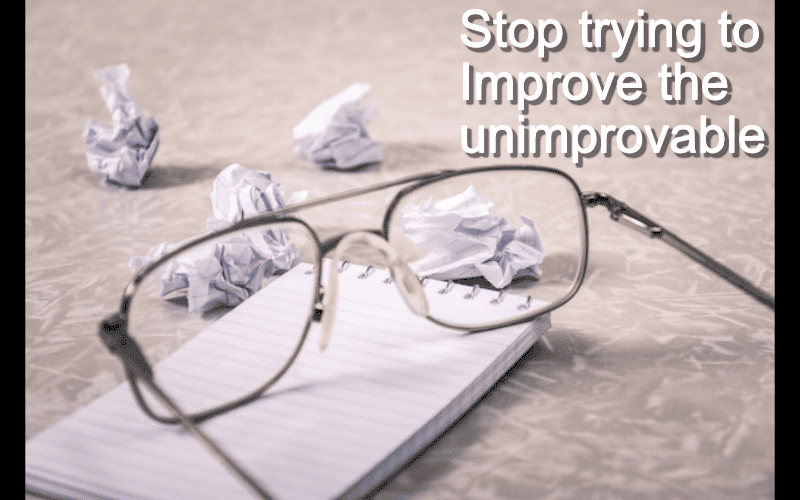Apparently, every single piece of music, in the historious, historical history of serious (not the non-serious) music had room for improvement. Any piano teacher worth their salt would have advocated this at one point or another during their despairing teaching careers. I, myself, have, but with the added disadvantage that I am an extremely mediocre piano teacher and a particularly subpar pianist!
But, to be honest, we all know that a piece of music is only improvable if we, performers, have the pianistic capacities to improve it. If can’t improve it, then we better have to let it go — at least temporarily.
So, when we must, finally, let go of a piece and leave to rest? Here are a few suggestions:
When our inner auditory perception of the piece is not fulfilled by our playing. Meaning, when we cannot make the piece sound the way we want. We often desire our practising pieces to end up having specific speeds, phrasings or dynamics and more often than not those derive from the influence of our teachers, favourite performers, or recordings. However, the question is whether we we have the technical capacities to follow upon the steps of our favourite influencers. Because, if we compare ourselves with those idealistic performances, we will often fall short of our expectations.
When a piece, or pieces, doesn’t get us where we want in the musical arena. Did this sonata passed us our audition? Did this violinist used us again to be his accompanist with that program in his solo recital? Thankfully, I’m not politically correct at all, and I dare calling us “accompanists!” The horror. Instead of calling us “pianists” or “collaborative pianists” that’s in vogue nowadays. And not to mention the use of the words “used us”! How horrible a person I am. Couldn’t care less, still. So if a particular sonata, etude, or song cycle didn’t get you that “gig” then it’s time you aborted the mission.
A more practical reason for why we should stop slaving away in an effort to improve an unimprovable piece, is to exchange it with a technique-elevating piece so as to eventually reach the technique necessary to play properly that elusive piece of ours. Not the shortest of sentences, but hopefully you got my gist: a piece that doesn’t improve should act as a sign of the need to change course and rectify our own technical inefficiencies.
More often than not, a piece just doesn’t improve because we grew to become bored with it. Yes, even our most favourite piece can fall prey to boredom. A favorite piece can easily become boring when technique gets in the way. Again, here we should concentrate on improving our technique and tackle the piece again at a later stage.
Copyright © 1st of November 2022, by Nikos Kokkinis
===========


